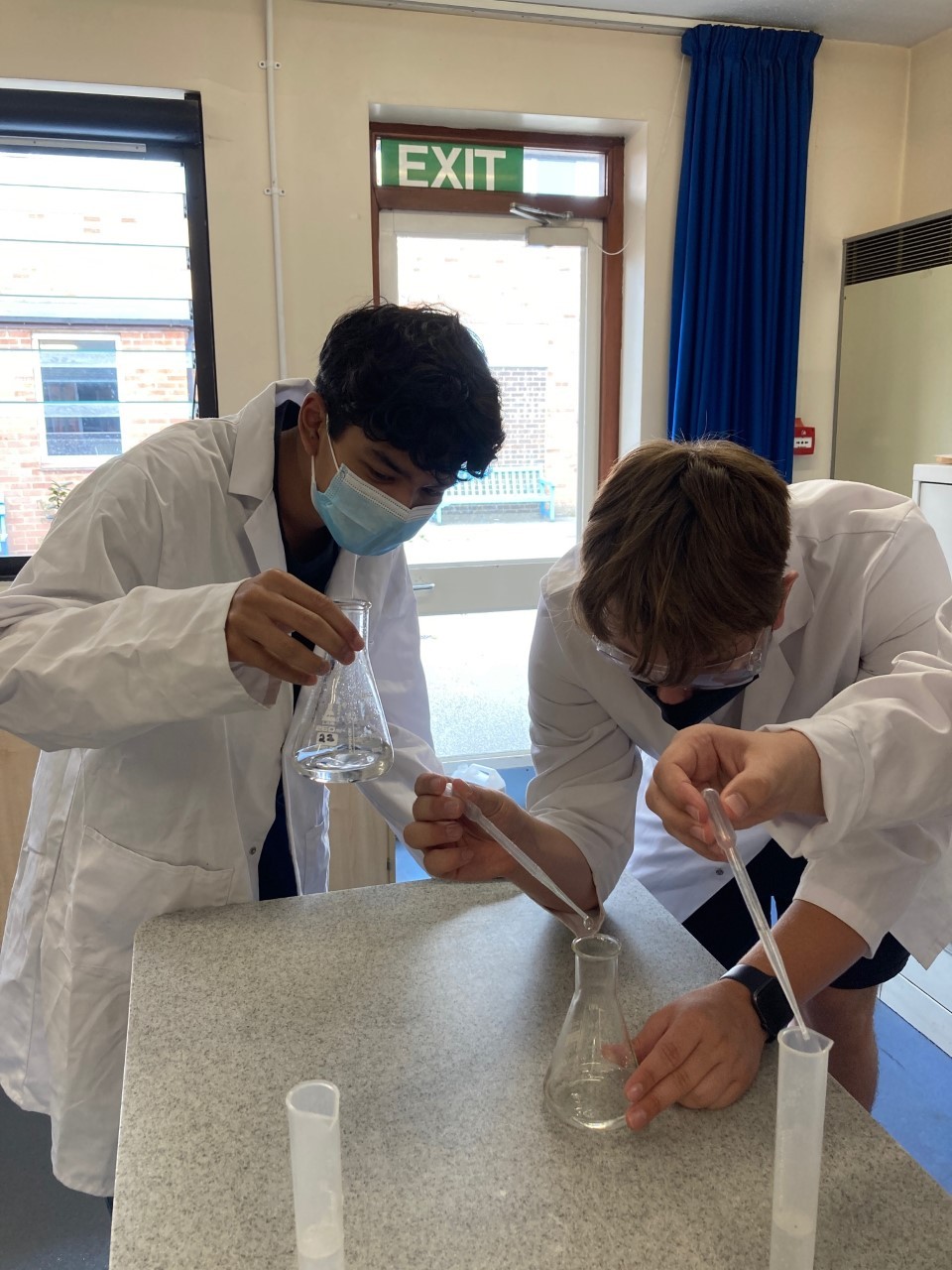Chemistry
Examining Body: OCR
Entry Criteria: Grade 6-6 in GCSE Combined Science or a 6 in Chemistry
Chemistry is the study of the composition, structure and properties of materials and of the interactions between them and with energy. It is divided into inorganic, organic and physical Chemistry and will include applications in the environment.
Successful students of Chemistry will have at least GCSE grade 6 – 6 in Combined Science or grade 6 in Chemistry, will be able and willing to work hard throughout the course and will have an aptitude and interest in the subject. A good grade in Mathematics is also an advantage. They will probably study other Sciences, and/or Mathematics, but Chemistry is an excellent addition to any A Level package.
Students are taught in well-equipped laboratories. Lessons cover new topics and revision, backed up with regular practical work. There will be outside visits to support the work undertaken in the laboratory. Students are encouraged to take responsibility for their progress which is measured by regular testing.
The study of Chemistry is the ideal method for improving thinking skills. The abstract nature of the concepts requires systematic and analytical thought. An ability to organise ideas logically, make connections between diverse areas of knowledge and extrapolate from known information, to show how it may apply to novel situations, is something chemists and chemistry students are required to do daily.
Problem solving is also a part of the course and pupils who respond well to the techniques taught in this subject will be able to apply these newly honed skills effectively to all of their academic subjects, as well as in the wider world. It is for this reason that Chemistry is the preferred A Level for the following University courses: Chemical Sciences; Agriculture; Food Science; Medicine; Dentistry; Veterinary Sciences; Medical Sciences; Anatomy; Physiology. It is also the reason why the study of Chemistry is considered an advantage in supporting non-scientific courses (e.g. Law, Accountancy, Archaeology, Geography and Economics, among others).
For those interested in a career in a scientific field, even a basic understanding of Chemistry will prove useful. There are few areas of modern science which do not have some connection with Chemistry.
Chemists are instrumental in a number of the areas of advancement which are presently stimulating the public imagination, including nanotechnology, biochemistry and genetics. Even for those not intending to study further, a background in Chemistry provides a valuable basis for understanding modern scientific endeavours and their possible effects on our future.
